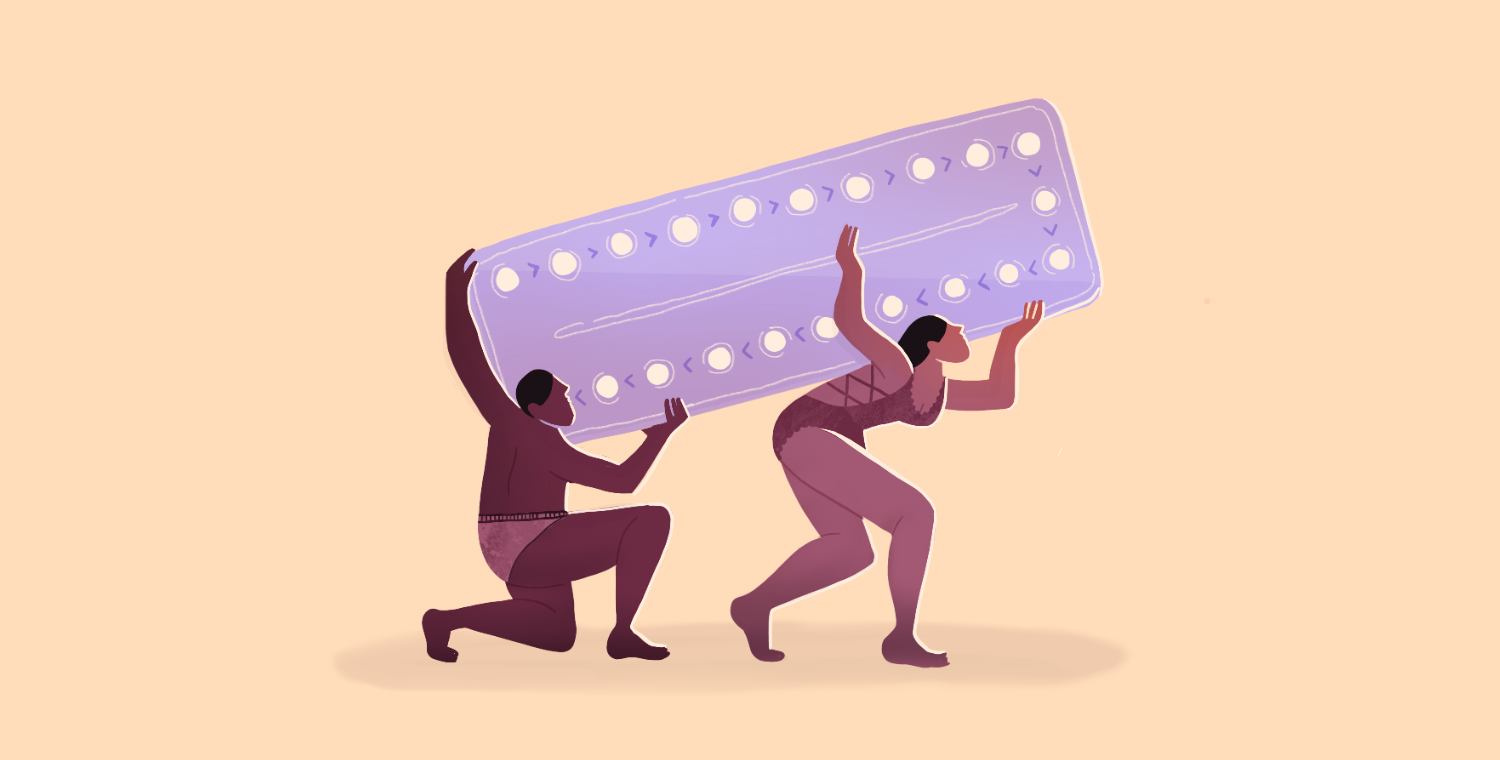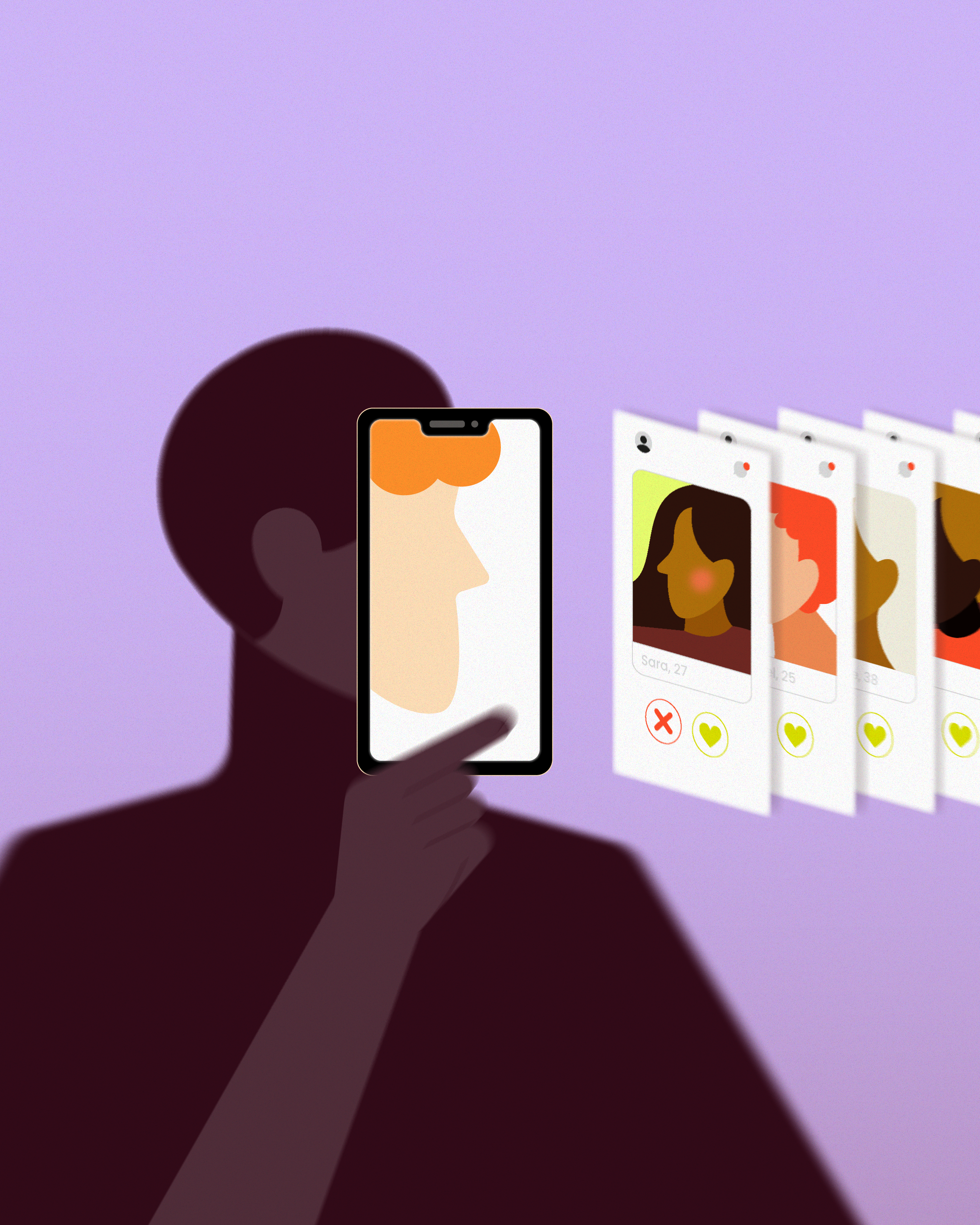Your cart is currently empty!

A Hard Pill to Swallow
I cry easily. Bawling is my trademark. Maybe it’s fatigue. Maybe it’s just life that gets to me, but I’m a big wad of emotions.
I tear up when I see cute posts about babies taking their first steps in comfy, stretchy diapers. I sob before, during, and after my premenstrual syndrome. And I’ve even cried over an iPhone alarm.
Yep. For an alarm. I’m that sensitive. It was 10 p.m. Every day, at the same time, my alarm reminds me to submit my body to the responsibilities that come with freedom.
It’s an ordinary weeknight. My new sweetheart and I are spending an evening gazing at each other in the park. It’s getting late, though we’re still illuminated by the last glimmers of dusk. This is one of summer’s fun perks: we get to see each other for longer.
In any case, we eventually walk through the door of his apartment. A ceiling light slowly takes over the sun and illuminates the lair: a place that’s not enormous, but decent. Cozy.
I’m proud of him. He has a fairly nice bed and enough towels that you never have to use a wet one. I say to myself: this man has his priorities straight. I find the idea of drying off with a piece of cloth that’s been waiting solely for you to be comforting. It’s important to feel chosen. I may be the only one in my friend group to do so, but I tend to choose my lovers like I choose my university courses… for their availability.
We go to his room. We chat about possible evening plans, even if everyone in this one-bedroom apartment, that is to say the two of us and our desires, knows full well that we’re not leaving the bedroom.
We’ve been seeing each other for a while, but it’s new enough that we’re still at that stage where we want to make each other come again and again. Like a new enthralling tune at the top of his playlist that we listen to on repeat.
We’re standing right between the burning desire to rip each other’s clothes off and the confidence to actually get on with it.
His footsteps recede. He locks himself in the bathroom. I take a look at the posters on his walls, the ones I’ve already judged harshly: Pink Floyd and some other band I don’t know. You can’t be original all the time.
My body shakes, feverish, a secret stuck between my legs. The pharmacist told me seven days. I counted my sleeps.
Tonight is party night. I put on a beautiful bodysuit—it really wasn’t easy to put that thing on. It has straps coming from everywhere… A bit of swearing was in order. If I were a lingerie designer, believe me, this bodysuit would have been different. I’m essentially a gift to be unwrapped slowly.
In my body, hormones are protecting us. Our pleasure is no longer dangerous.
I did this for us, so that we can be the song that we play on repeat, without needing to get ready, without condoms, without wondering if we are playing with fire.
He comes out of the bathroom. I turn to him. Two silent tears roll down my cheeks. Under my fingers, his phone vibrates. It’s 10 p.m. At the back of the apartment my alarm rings, and in my hands, his alarm. Like a reminder of my sacrifice, that this is a pill I take every day at the same time.
He can’t take that dose of estrogen for me. He’s unable to sacrifice his body to free our orgasms, but he at least makes the effort to be present, every day, at the same time.
And that evening, in all the straps of my negligee, I cry softly, repeating to myself: this man has his priorities straight.
-
Barth, C., Villringer, A. et Sacher, J. (2015). Sex hormones affect neurotransmitters and shape the adult female brain during hormonal transition periods. Frontiers in neuroscience, 9, 37.
Brown, S. (2015). ‘They think it’s all up to the girls’: gender, risk and responsibility for contraception. Culture, health & sexuality, 17(3), 312-325.
Tone, A. (2012). Medicalizing reproduction: The pill and home pregnancy tests. Journal of sex research, 49(4), 319-327.
Rotermann, M., Dunn, S. et Black, A. (2015). Oral contraceptive use among women aged 15 to 49: results from the Canadian Health Measures Survey. Statistics Canada Health Reports, 26(10), pp. 21-28.
Skovlund, C. W., Mørch, L. S., Kessing, L. V. et Lidegaard, Ø. (2016). Association of hormonal contraception with depression. JAMA psychiatry, 73(11), 1154-1162.
Windsperger, A. P., Art, K. S., Epp, A., Greiner, A., Tash, J. et Nangia, A. K. (2012). Male and female public opinion regarding a possible male contraceptive pill. Fertility and Sterility, 98(3), S6-S7.






